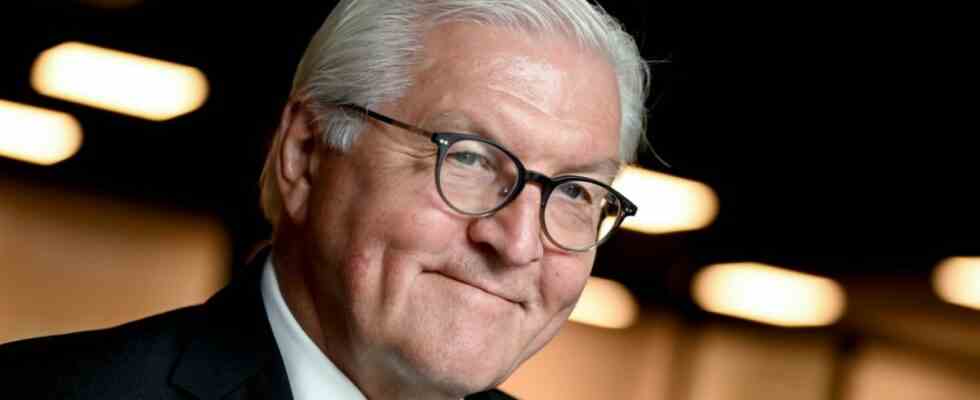At an award ceremony in New York, Federal President Frank-Walter Steinmeier surprisingly warned against careless dealings with China. “China has changed,” Steinmeier said, according to the speech transcript. The Federal President lamented a “time of hardening”. This does not exist “only domestically, through an authoritarian policy that suppresses any deviation”. And not just “because of China’s hegemonic claims in the South Pacific region.” China is also following “a changed, threatening foreign and economic policy philosophy: make China independent of the world – and make the world dependent on China”. But those are “rules for a game that we don’t want to play – and we can’t,” said Steinmeier, “we have to react to that.”
The reason for the speech was the presentation of the Henry A. Kissinger Prize to the Federal President. Steinmeier had flown to New York especially for this. The prize is awarded by the American Academy in Berlin. Helmut Schmidt, Helmut Kohl, Angela Merkel, Richard von Weizsäcker, Wolfgang Schäuble and George HW Bush have also been honored with it. Kissinger, who turns 100 in May, actually wanted to attend the award ceremony. On medical advice, however, he canceled at short notice and only sent a video message.
The eulogy for Steinmeier was given by former US Secretary of State Condoleezza Rice. Steinmeier and she were foreign ministers at the same time between 2005 and 2009. The Federal President wants to fly back to Germany on Thursday evening local time. He was last in the USA in November 2021 – at that time he was awarded the Leo Baeck Medal.
“The world has changed since February 24,” said Steinmeier at the Kissinger Prize ceremony, referring to the start of the Russian attack on Ukraine. That means “that we have to say goodbye to old thought patterns and hopes”. The history of European-Russian and German-Russian relations is “proof that there is no guarantee, no certainty that economic exchange will also lead to political rapprochement”. For the future, that means: “We have to learn lessons, we have to reduce one-sided dependencies, and that applies not only to Russia, but also – and even more so – to China.”
Steinmeier recalls Henry Kissinger’s trip to Beijing
It is not about an “end of exchange and dialogue” with Beijing, said the Federal President. Because of its sheer size alone, China will remain a factor in the global economy. It is a permanent member of the United Nations Security Council. China’s cooperation in the fight against climate change is also needed. It is therefore right that US President Joe Biden and the Federal Chancellor are seeking talks with the Chinese President.
But it is also true: “We have to protect ourselves – we have to avoid being politically and economically vulnerable. We have to reduce our dependency on Chinese supplies as well as on Chinese raw materials. We have to make our economies resilient.” It’s not about “protectionism, deglobalization or even naive efforts towards self-sufficiency – on the contrary!” said the Federal President. Rather, one must expand one’s own network with the world. That is why one must “not concentrate the opportunities, but certainly not the economic risks in one country, but spread them out over many countries”.
Steinmeier recalled Kissinger’s secret trip to Beijing in July 1971, which marked the beginning of China’s opening to the West, especially to the USA. It was Kissinger, as he later wrote in his book On China wrote was not about friendship, “but about something much more pragmatic: enabling coexistence,” said the Federal President. “Having this coexistence enabled us to decisively advance China’s opening” is one of Kissinger’s undeniable great achievements. But today, unfortunately, one has to realize that China has changed since then. The period of opening was followed by a period of hardening.

